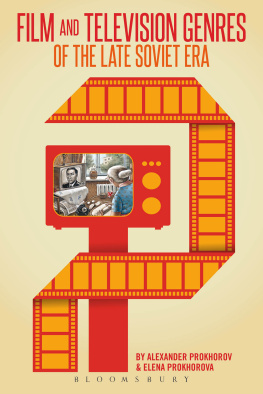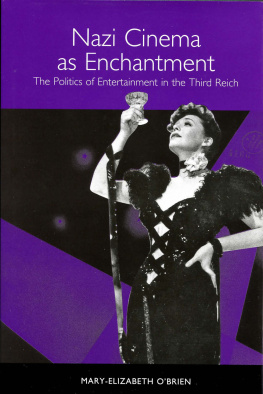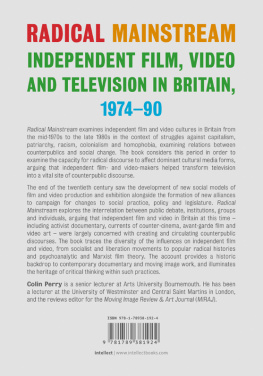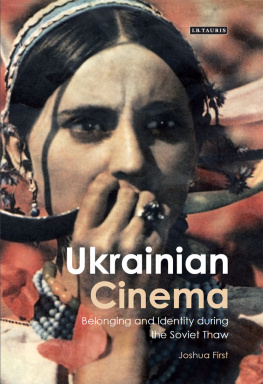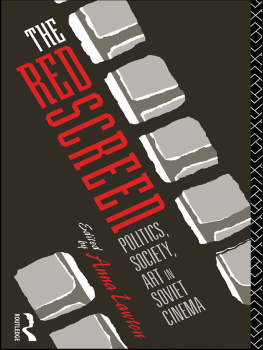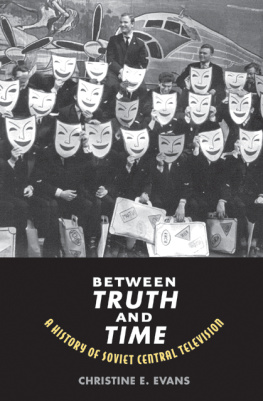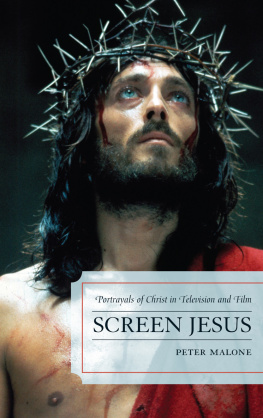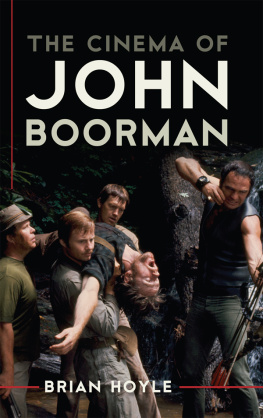Film and Television Genres of the Late Soviet Era

Contents
Street advertisement for Iurii Ozerovs Liberation in East Berlin (1972)
Dancers in the Mass Ornament in War and Peace
Split screen in the scene after Natashas first ball
Simon Ushakovs The Tree of the Muscovite State 1668
Oak Tree in Otradnoe as the Tree of the Russian Empire. The directors name is superimposed on the image of the tree
Prayer before Borodino, a harbinger of victory. No prayer before Austerlitz led to defeat
The victory bonfire
Liudmila Saveleva as Natasha Rostova
Audrey Hepburn as Natasha Rostova
The number of Soviets killed in the Second World War confirms who made the major contribution
Tank stunts as visual attraction: T-34 tank jumps over obstacles
Promotional brochure for Liberation
Promotional brochure for Liberation
Promotional brochure for Liberation
The Imperial Army and Golden Domes of Orthodox Cathedrals meet each other in Barber of Siberia (dir. Nikita Mikhalkov 1999)
President Vladimir Putin on the set of Burnt by the Sun-2
The investigator (Mikhail Zharov) exposes the spy under Stalins eagle eye in Engineer Kochins Mistake
Interrogation as soul-searching in The Investigation is Conducted by Experts (1972)
Fashion show as a value-neutral consumer spectacle
The police team in The Investigation is Conducted by Experts
Garbage dump as a setting and metaphor in The Investigation is Conducted by Experts, Episode 10 (1975)
Soviet teenagers and the gun fetish in Episode 13 (1978) of The Investigation is Conducted by Experts
Stalins portrait behind the protagonist in The Meeting Place Cannot Be Changed
Criminal types in The Meeting Place Cannot Be Changed
Intelligentsia on trial in The Meeting Place
Zheglov in action in The Meeting Place
Kalugina as the gloomy Soviet bureaucrat
A character mocks the humorless boss
The individual overshadowed by the body of a nameless working-class character
Collective identity only in a state of inebriation
Zhenia visibly suffers but recovers himself and makes a proposal to his fiance Galia, a woman he does not love
Zhenias mother observes the female intruder
The last frame of Zakharovs film: Munchausen departs into outer space from his oppressive community
Ilya Kabakov. The Man Who Flew into Space from His Apartment. Installation. Created in 1984
Ostaps eye gazing directly at the viewers opens every episode of Zakharovs Twelve Chairs
And this is his dream as well
Giant Glium, who was ordered by the city mayor to stop growing
Evgenii Leonov as the king in An Ordinary Miracle
The kings court, puzzled by characters who can have both agency and emotions
The kings three-cornered Napoleonic hat covers
a Russian babushka kerchief
Princess Volkonskaias tear-stained face
Panagia Eleousa
Shura and her stepdaughter, with a church in the background
Revolution and love in Shadows Disappear at Noon
Russian community at the core of Soviet television melodrama Shadows Disappear at Noon
Sergei and Tania, the Soviet Romeo and Juliet
A TV cartoon character looks in amazement at the male protagonist who has undergone a dramatic change
The good Soviet life after the heros death
Warrior paradise lost/exchanged for the good but uninspiring life
Watching the utopia in its final hour
Uvarova in search of utopia, with the church in the background
Uvarova mentoring her children
Tatiana and Aleksei entering the monumental world of the communist paradise (Radiant Path 1940)
A Russian (not Soviet) male protagonist emerging from behind a Russian samovar
We would like to thank our mentors, Helena Goscilo and Vladimir Padunov, and our patient and supportive teachers, Mark Altshuller, David Birnbaum, Nancy Condee, Lucy Fischer, Jane Feuer, and Carole Stabile. We consider ourselves very fortunate to have worked and exchanged ideas with helpful and thoughtful colleagues at the University of Pittsburgh and the College of William and Mary. Continuous conversations, panels, and projects with our colleagues, Tony Anemone, Petr Bagrov, Marina Balina, Birgit Beumers, Eliot Borenstein, Katerina Clark, Fred Corney, Yana Hashamova, Beth Holmgren, Mikhail Iampolskii, Vida Johnson, Lilya Kaganovsky, Arthur Knight, Ilya Kukulin, Mark Lipovetsky, Masha Maiofis, Anna Malguina, Zhenia Margolit, Viktor Matizen, Tatyana Mikhailova, Serguei Oushakine, Rima Salys, Elena Stishova, Alexei Yurchak, and many others greatly assisted our research, although they may not agree with all of the claims and interpretations provided in this book. We thank Emilia and Ilya Kabakov for their generous permission to use a photograph of the installation The Man Who Flew into Space from his Apartment. We also thank Anzhela Dzherih for her permission to use her image on our cover. During the writing process we benefitted from the enthusiasm and support of the editorial staff at Bloomsbury Academic, above all Katie Gallof. Finally, we would like to thank our mothers, Natalia Prokhorova and Valentina Shemonaeva, who brought us up and persevered through all the hardships of Soviet late socialism, and our daughter, Dasha Prokhorova, who is the love of our lives.
This research was supported by the grants from the Reves Center for International Studies, Film and Media Studies Program, and the College of Arts and Sciences of the College of William and Mary.
Note on Transliteration and Translation
This book uses the Library of Congress system of transliteration, except when alternate spelling is commonly used, e.g. Leo Tolstoy, Sergei Eisenstein. All translations from Russian into English are ours unless otherwise noted.
This book examines film and television genres of the late-Soviet era, a topic and an era both challenging and important. Their importance lies not only in the necessity to conceptualize the tapestry of facts and fictions of, and approaches to, the 1970s, but also in the fact that contemporary Russian television and cinema bear hereditary features of late-socialist genres.
There is no agreement among film scholars on what genre is and which films do or do not belong to a particular theoretical genre. Even studies of the classical Hollywood studio system, with a long tradition of theoretical writings on the industry, audiences, and individual texts, have not established any consensus as to the body of films that constitute a particular genre or the function of the genre in culture, both inside and outside US borders. Genre studies of national cinemas, out of necessity, traditionally have relied on the methodologies and insights coming out of the scholarship of the Hollywood system, whose contextcommercial, institutional, and ideologicalis very different from that of other national film industries. In this Introduction we provide a very broad overview of three dominant approaches to film genre that originated largely in American film studies, before defining our own, and venturing into the difficult fate of genre in the land of late socialism.
One thing most film scholars agree on is that the concept of film genre is a useful tool to look for clusters of meanings and frameworks of understanding that were shared by producers and consumers of the most influential media of the past century: film and television. Genre is also a flexible category, accounting for the many forces at play in the production and consumption of visual texts, no matter how one theorizes the relationship of these

